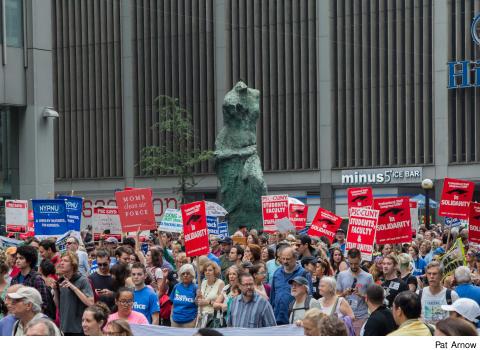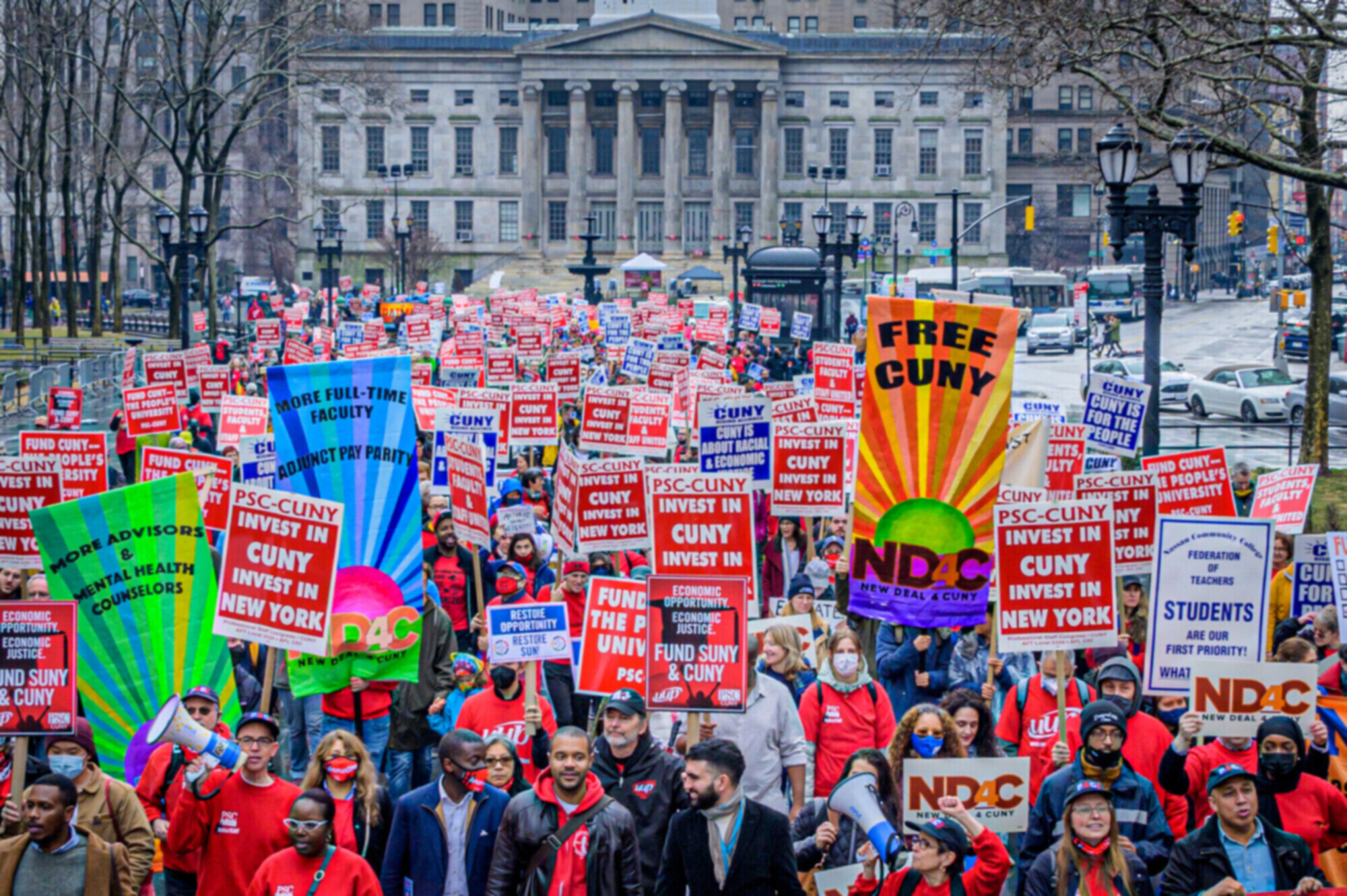 |
President Donald Trump has surrounded himself with fossil fuel advocates and climate change deniers. He wants to crush the pipeline resisters, roll back the progress in clean energy made during the Obama administration and drop US support for the Paris climate agreement.
But the White House will continue to face resistance to its agenda. Yet another mass demonstration on April 29 will bring together the diverse opposition to Trump’s climate agenda, this time under the banner of climate justice. The People’s Climate Movement is inviting everyone to join the resistance and help build on the momentum sparked by the women’s marches in January.
ALL MEMBERS WELCOME
The PSC Environmental Justice Working Group, which formed last year, encourages all members to sign up and join the April 29 march. The recently formed committee supports CUNY’s clean energy and community solar efforts, as well as the many campus-based initiatives that elevate environmental justice issues through teaching, activism and the building of community alliances. Educators, both as teachers and as union members, have a particular responsibility to spread knowledge about the science and politics behind public debates, while incorporating our union’s foundational commitment to social justice. The PSC working group is part of a nationwide discussion around the proposal for a labor convergence on climate.
The People’s Climate Platform is the foundation for the April 29 March for Jobs, Justice and the Planet. It follows the first People’s Climate March in 2014 that brought over 400,000 people to New York City, joined by many more in other cities around the world. The PSC contingent at the 2014 march was the largest of any labor group. The mobilizations helped create pressure that led to the signing of the Paris climate agreement in 2016, an accord in which governments, including the United States, made commitments to reduce their carbon emissions to prevent warming above the 1.5 degree centigrade threshold that scientists say will lead to irreversible and damaging consequences. President Trump has opposed the Paris agreement and, with his typical swagger, claims he can negotiate “a better deal” for the United States.
The People’s Climate Platform broadly appeals to “all of our movements,” including labor and community, and calls for “good jobs, justice for communities and clean energy.” An essential element in the organizing is the leadership of “frontline communities.” These are largely low-income communities of color that have typically been ignored by the mainstream environmental movement, even though they are among the first to experience the negative consequences of climate-induced warming and sea-level rise, and they often lack the public and private resources to bounce back.
A GLOBAL ISSUE
The focus on environmental justice acknowledges that climate change is a global and profound crisis that affects everyone. It threatens all of humanity as well as many other species on Earth. But as global investors drag their feet and hedge their bets by dabbling in clean energy while sustaining their long-term investments in fossil fuels, it is too easy to be lulled into complacency. Too many have put undue faith in what Pope Francis, in his encyclical on climate change, calls “technological fixes.” Those who have the privilege of living in exclusive and protected enclaves too easily succumb to a false optimism while downplaying resistance to President Trump and the league of climate change deniers behind him.
For information about the People’s Climate Movement in New York, contact newyork.peoplesclimate.org. For the PSC Environmental Justice Working Group, contact co-chair Darren Kwong.
Tom Angotti is a professor of urban policy and planning at Hunter College and the Graduate Center.

